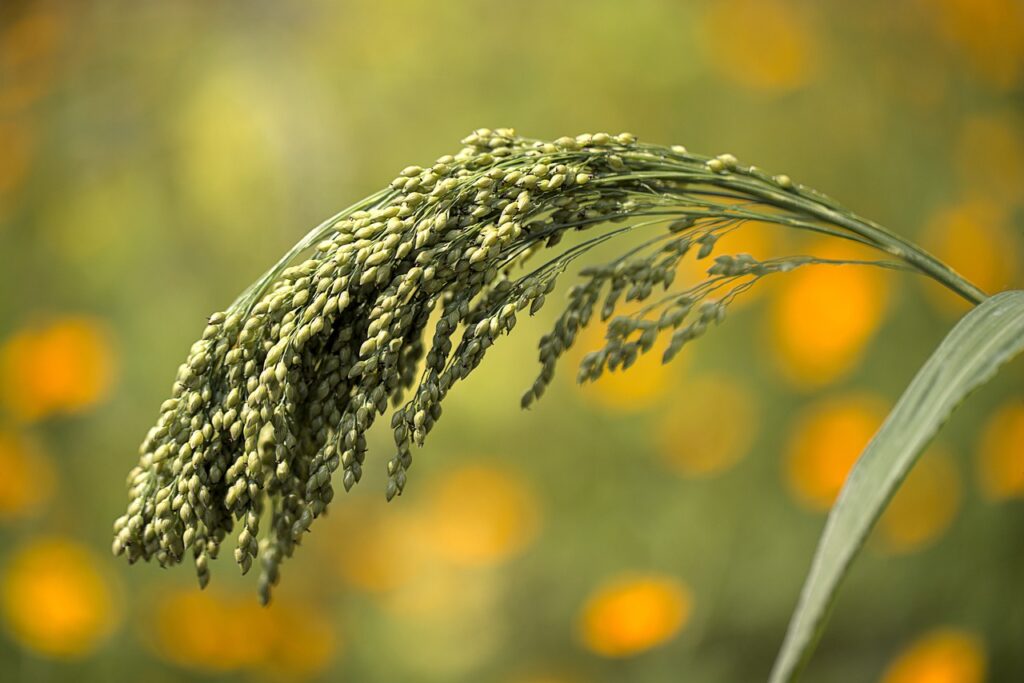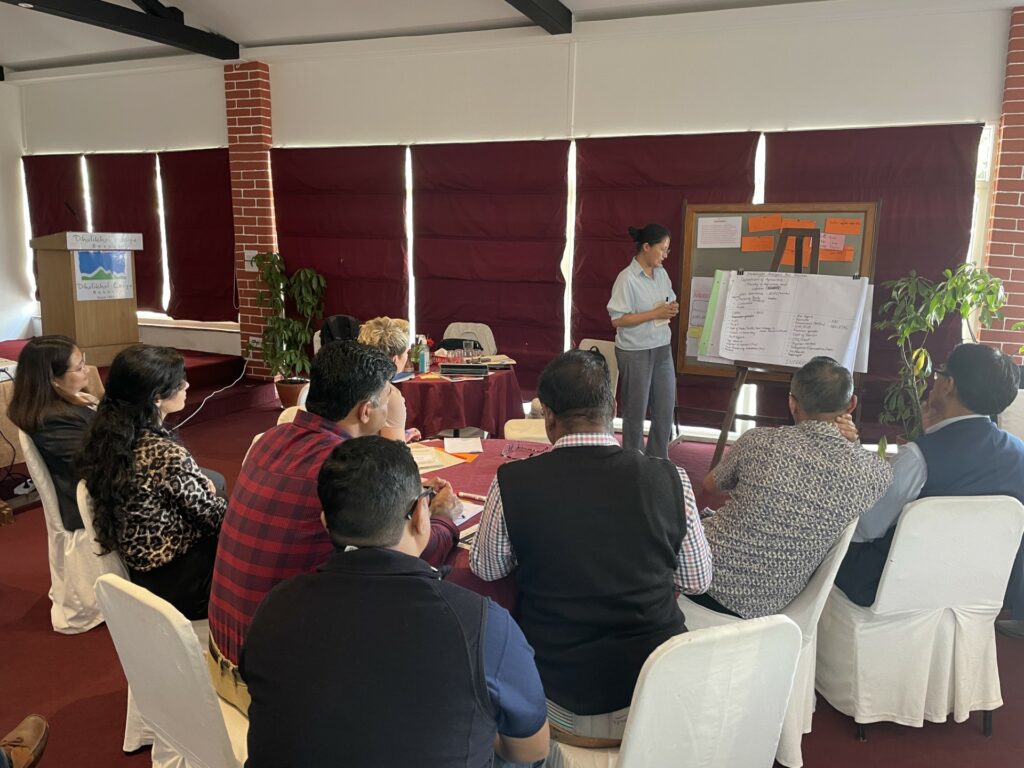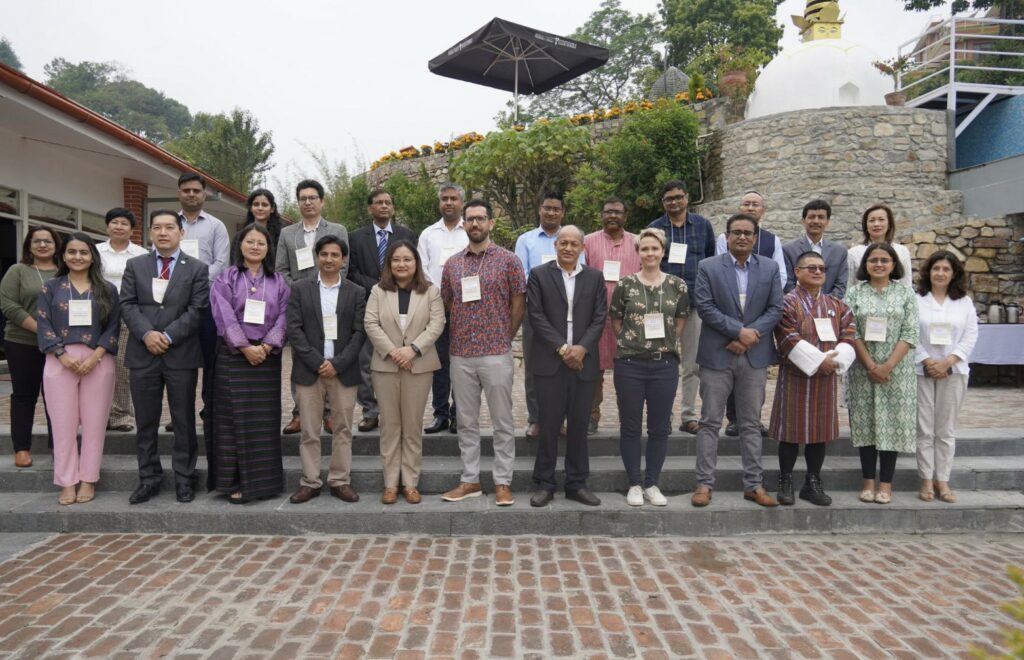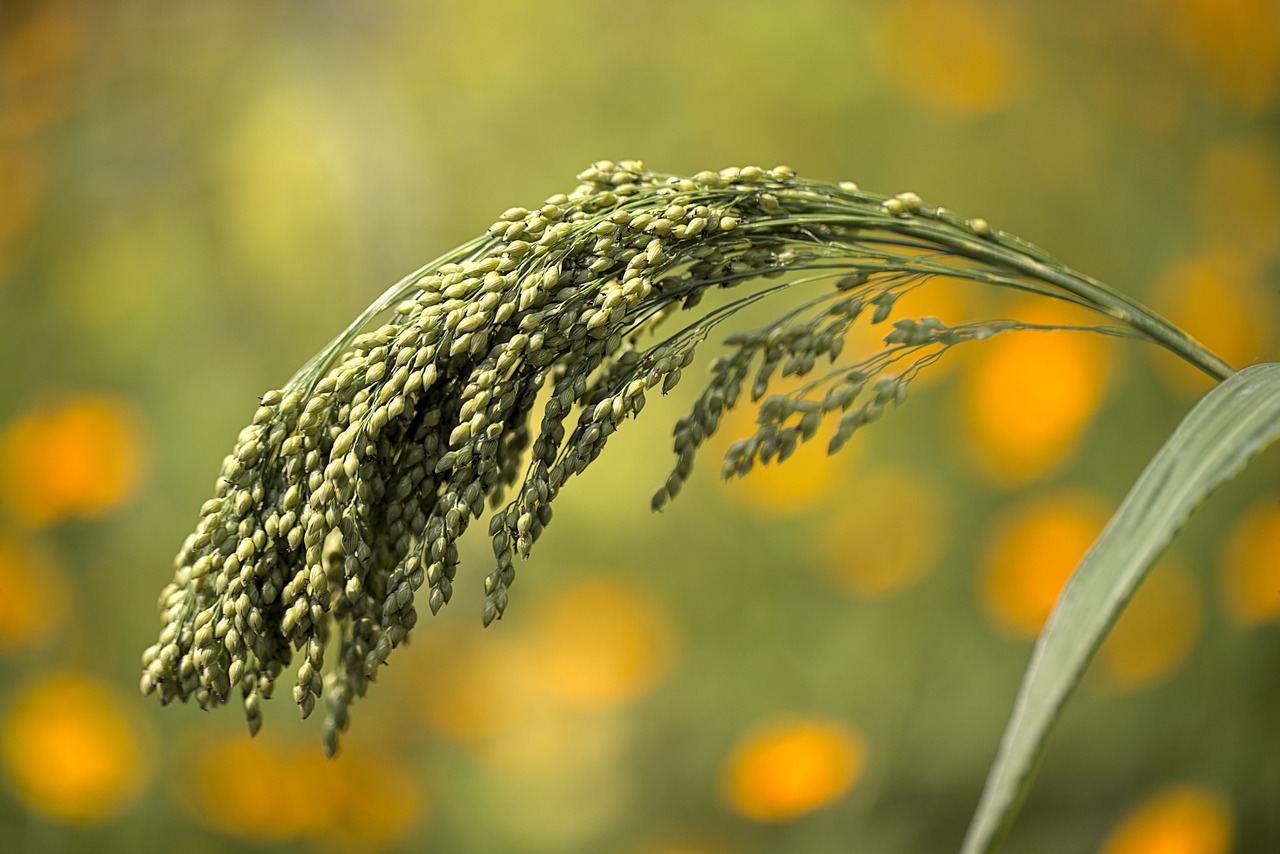2023 is the International Year of Millets, focusing attention on initiatives by national governments and development organisations to promote this important crop. In this blog, Grady Walker, Co-lead of the Thematic Group on Mountain Agriculture for the Himalayan University Consortium (HUC), writes about the consortium’s campaign to raise awareness of millet production – and its significance for food security – among policymakers, the media and the wider public.

Communities across the world have depended on millets, a group of cereal grains, as a source of nutrition and sustenance for generations. Millets are deeply rooted in the cultural traditions and customs of these communities.
The importance of millet has been recognised as critical in addressing food security, especially under the current climate change scenarios: they are well-known for their nutritional value, their resilience and their adaptability to diverse conditions.
In May 2023, the Himalayan University Consortium and the University of Reading organised a policy workshop in Kathmandu.

The participatory event brought together delegates from four countries in the Hindu Kush Himalaya region and resulted in policy briefs on millets for Nepal, Northeast India and Bhutan. The recommendations in the policy briefs address specifics issues and challenges faced by each country:
- Revitalising millets in Northeast India: a healthy choice
- Revitalising millets for rural transformation in Nepal (draft version)
- Pathways to enhance millet production and consumption in Bhutan.
The workshop provided valuable support in developing policy briefs, highlighting crucial policy, research, and knowledge gaps, as well as barriers and bottlenecks hindering the revival and integration of millets within the Himalayan food systems.
It enhanced the capacity of the selected country representatives who attended to formulate concrete, policymaker-focused recommendations that are highly relevant to their respective national or sub-national contexts.
A collaborative environment was fostered by bringing together academics and policymakers and using participatory methods to establish a common understanding of millet production. As a result, the three country-specific national policy briefs were produced, catering to the unique needs and challenges of each region.

Lastly, the workshop played a pivotal role in raising political awareness about the significance of millets in terms of food security, nutrition, and the preservation of indigenous knowledge and cultural heritage. This holistic approach emphasised the multifaceted benefits of millets beyond their nutritional value, thus amplifying their importance on a larger scale.


